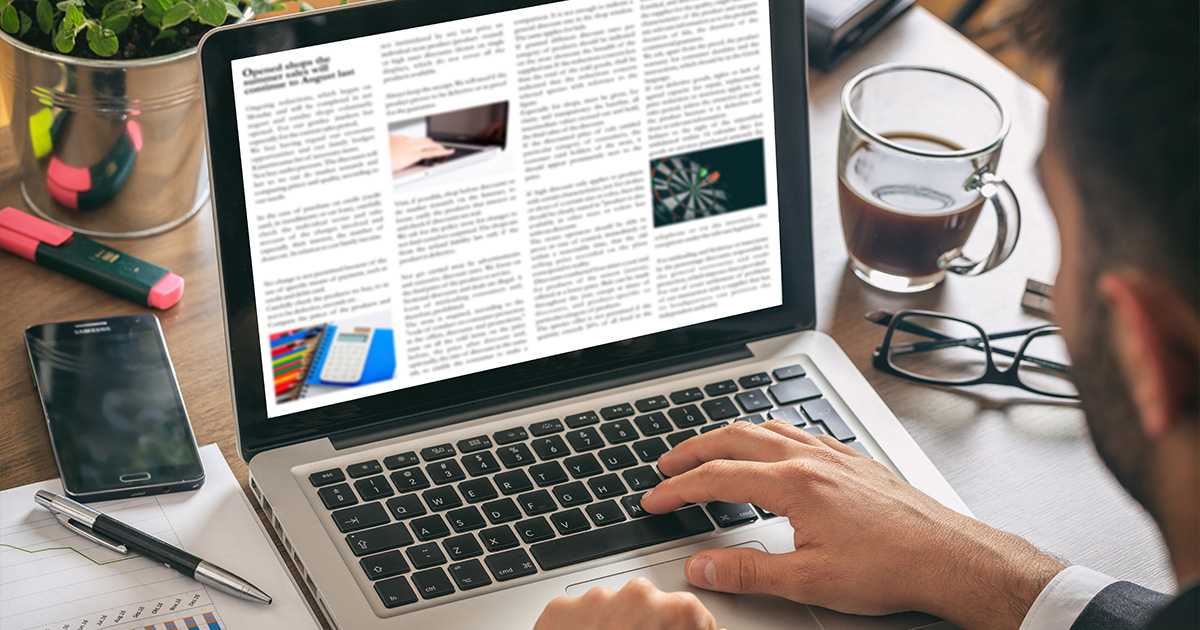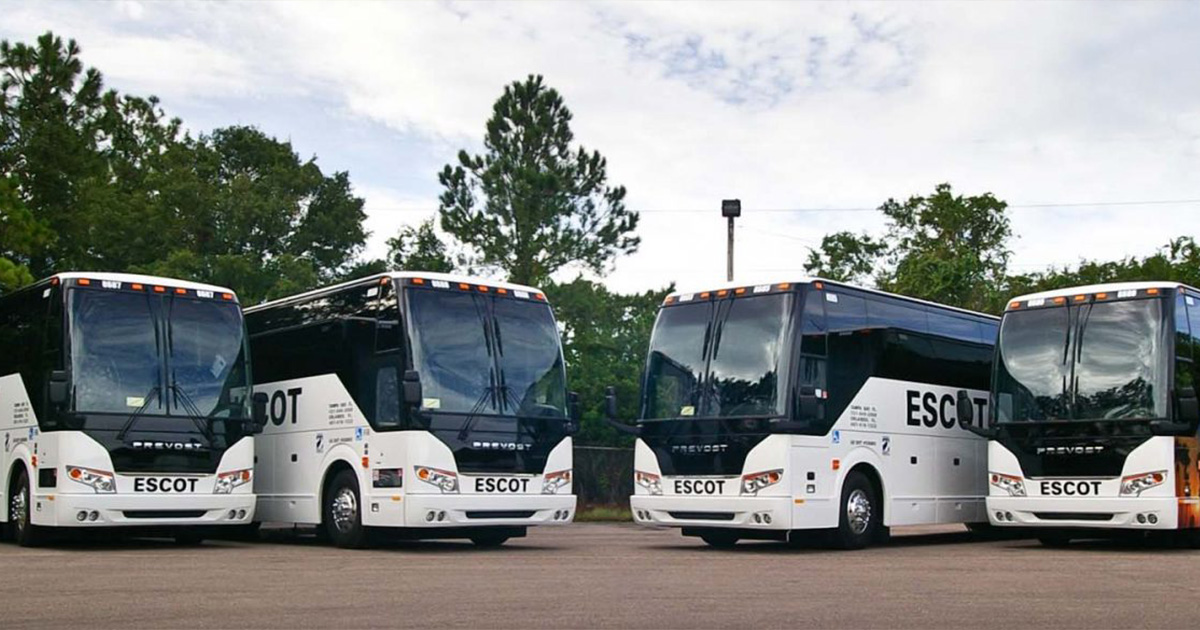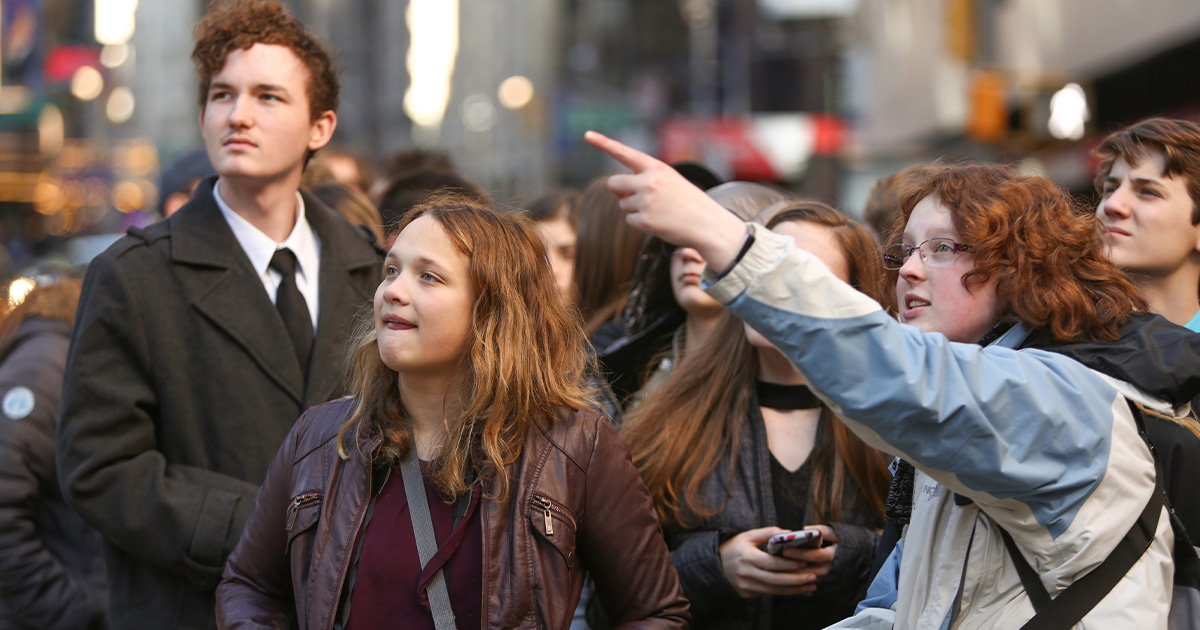Written by Denise Gammon, Curriculum and Academics Specialist at WorldStrides.
In my tenth-grade history class, I was required to memorize the front page of the local Monday newspaper for a quiz on Friday of that week.
This was my (otherwise very engaging) history teacher’s attempt to meet the current events educational standard set by our state. At the time, this quiz was possibly my only exposure to the news. It kept me somewhat aware that there was a world beyond the walls of my high school, albeit a week behind. This is not true for students who occupy the classrooms of today. They are more informed, or misinformed, than even the most engaged student 10 years ago.
The digital natives in our classrooms have all the news they could ever want with the swipe of a finger and are even affecting what we define as news. This immediate access and interest in the news offers educators an opportunity to use current events to enrich their classroom curriculum. Researching, analyzing, and discussing current events fosters critical thinking and allows students to make real world connections, creating the authentic application that educators seek. As students work with news sources, they learn skills needed to vet these stories for legitimacy and bias. Differentiating fact from opinion is an almost organic component to this process.
Current events can also serve as a bridge from your content area to your travel program by fostering curiosity, framing the purpose of the program with guiding questions, and underscoring your academic purpose of the travel. Here are a few suggested activities to leverage current events in the classroom:
Student-led debates and discussions
Encourage students to find articles that focus on the curricular goals of their travel program. Are you going to Washington, D.C., to learn more about how our government works? Have students explore what bills will be on the floor of Congress during their travel program. Students can research the bill, take sides, and debate!
Project-based learning making hometown connections
Students (and teachers) always love a good project/problem-based learning activity. Have students find a current event that impacts their home community as well as their travel destination. While the issue may be similar, it probably impacts these two destinations in different ways. Ask students to craft solutions for how these problems can be addressed while taking the cultural needs of the respective communities into consideration. Students will then be equipped to explore how these issues have been addressed while on their travel program.
Change perspectives inside the classroom
In preparation for your travel program, encourage students to seek out current event articles from their travel destination. This will allow students to shift their perspective to gain insight into the culture and concerns of the community they will visit. This activity is great for any class that focuses on human cultures, such as a language course. You don’t have to stop at the written word. Inviting individuals from your community who have first-hand experiences in your travel destination will further expand student understanding. Perhaps, you know someone who served in your travel destination while they were in the Peace Corps or in the military, or maybe you know someone who lived in the area. Invite them into your classroom to share their thoughts about the current events that your students have researched. This practice will provide the opportunity to learn something new and will allow your students to take the lead, simultaneously increasing their intercultural empathy.
Integrating current events into the classroom does not have to be stale or boring! Encouraging students to delve into the news allows teachers to leverage their students’ interests to drive curiosity in the classroom. By including current events in your classroom, you will provide students with the tools needed to assess the reliability and truthfulness of their source, develop their own opinions using facts, and inspire them to gain insight into different perspectives, encourage students to become the informed, engaged, and responsible citizens that you hope that they will become.
Article courtesy of WorldStrides.




